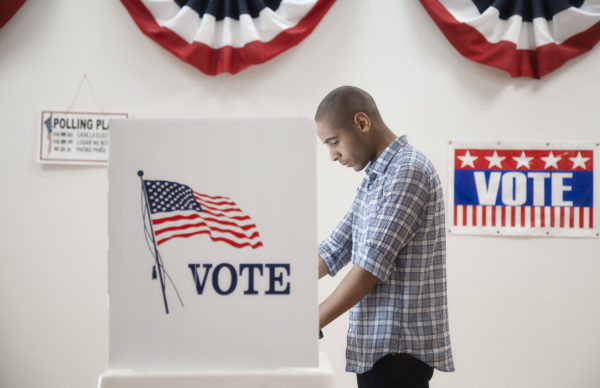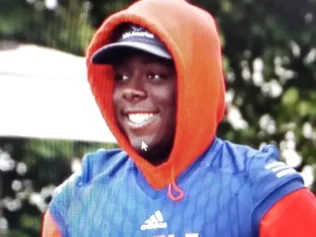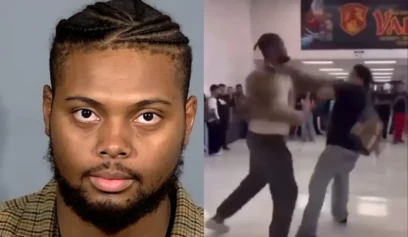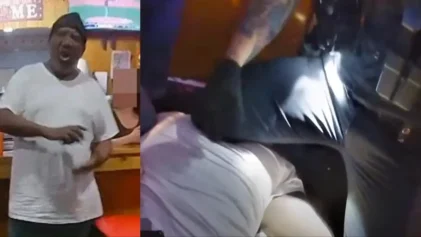A federal appeals court decision that effectively weakens a key section of the Voting Rights Act for Black and Brown voters in several states and could dampen their power ahead of the 2024 presidential election.
In a 2-1 decision on Nov. 21, the 8th Circuit Court of Appeals restricted part of the Section 2 provision that protects voters of color from racial discrimination, ruling that only the federal government can sue to enforce this section, not private individuals or civil rights groups.

The 8th Circuit covers Minnesota, Iowa, North Dakota, South Dakota, Nebraska, Missouri, and Arkansas, so private individuals and groups in these states can no longer bring litigation alleging voter discrimination for the time being.
This decision comes at a time when several Southern states have been ordered to redraw congressional district lines due to voter discrimination. This is the result of the work of groups like the ACLU and the NAACP, which have filed legal complaints alleging that old district lines purposely and illegally diminished the power and influence of the Black and Brown vote.
In the last year, state lawmakers in Alabama, Georgia, South Carolina, and Louisiana have had to redraw their congressional lines to enfranchise minority voters.
In 2021, the Arkansas NAACP and others challenged their new state House districts, alleging that the Arkansas map also violated Section 2 and reduced the power of Black voters. They demanded that five additional majority-Black districts should be drawn to fairly represent the state’s Black population.
Section 2 of the Voting Rights Act was upheld in June by the Supreme Court, but the recent ruling from the 8th Circuit Court of Appeals will likely reprise another national battle over voting rights when numerous state elections are slated to take place across the country.
U.S. Circuit Judge David Stras, a Trump appointee and Supreme Court Justice Clarence Thomas’ former court clerk, wrote the majority opinion on the ruling, stating there is no “private right to action” in Section 2, which prohibits discrimination based on race.
“When those details are missing, it is not our place to fill in the gaps, except when ‘text and structure’ require it,” Stras wrote.
In 1982, Congress fortified and expanded Section 2 to allow voters to show discriminatory impact rather than solely demonstrating proof of intentional discrimination. So, the recent lawsuits challenging state congressional district lines that disproportionately impacted Black voters helped fight rampant and systemic discrimination.
Over the last 40 years, at least 182 successful suits under the section have been brought forward, yet only 15 of those suits were launched by the Department of Justice, leaving more than 100 suits to be launched by private plaintiffs, according to George W. Bush-appointed Black judge Lavenski Smith. Smith was the only judge on the appellate panel to make a dissenting vote.
“Rights so foundational to self-government and citizenship should not depend solely on the discretion or availability of the government’s agents for protection,” Smith wrote in his dissenting opinion.
Civil rights groups and advocates weighed in on the decision, denouncing it entirely in the knowledge that it vastly dilutes their power to protect voters in states under the 8th Circuit Court of Appeals.
“The ruling has put the Voting Rights Act in jeopardy, and is very cavalierly tossing aside critical protections that voters have very much fought and died for,” Sophia Lin Lakin, the director of the ACLU’s Voting Rights Project, told The Associated Press.
Barry Jefferson, political action chair of the Arkansas State Conference of the NAACP, also told AP that the ruling is “a devastating blow to the civil rights of every American, and the integrity of our nation’s electoral system.”
“For decades, private individuals and civil rights organizations have brought forward the majority of Section 2 cases under the VRA – including many cases this year that forced Republican-led state legislatures in Alabama, Louisiana, and Florida, among others, to redraw congressional maps to give Black voters better representation,” Congressional Black Caucus Chairman and Nevada Rep. Steven Horsford said in a statement. “This decision by the appellate court is ill-advised, cannot stand, and should be appealed to the U.S. Supreme Court, which we hope will reaffirm that citizens have a private right of action to bring forward lawsuits under Section 2.”
Next steps are unclear right now. Legal experts expect an appeals process will get underway and the case will be taken to the Supreme Court.


